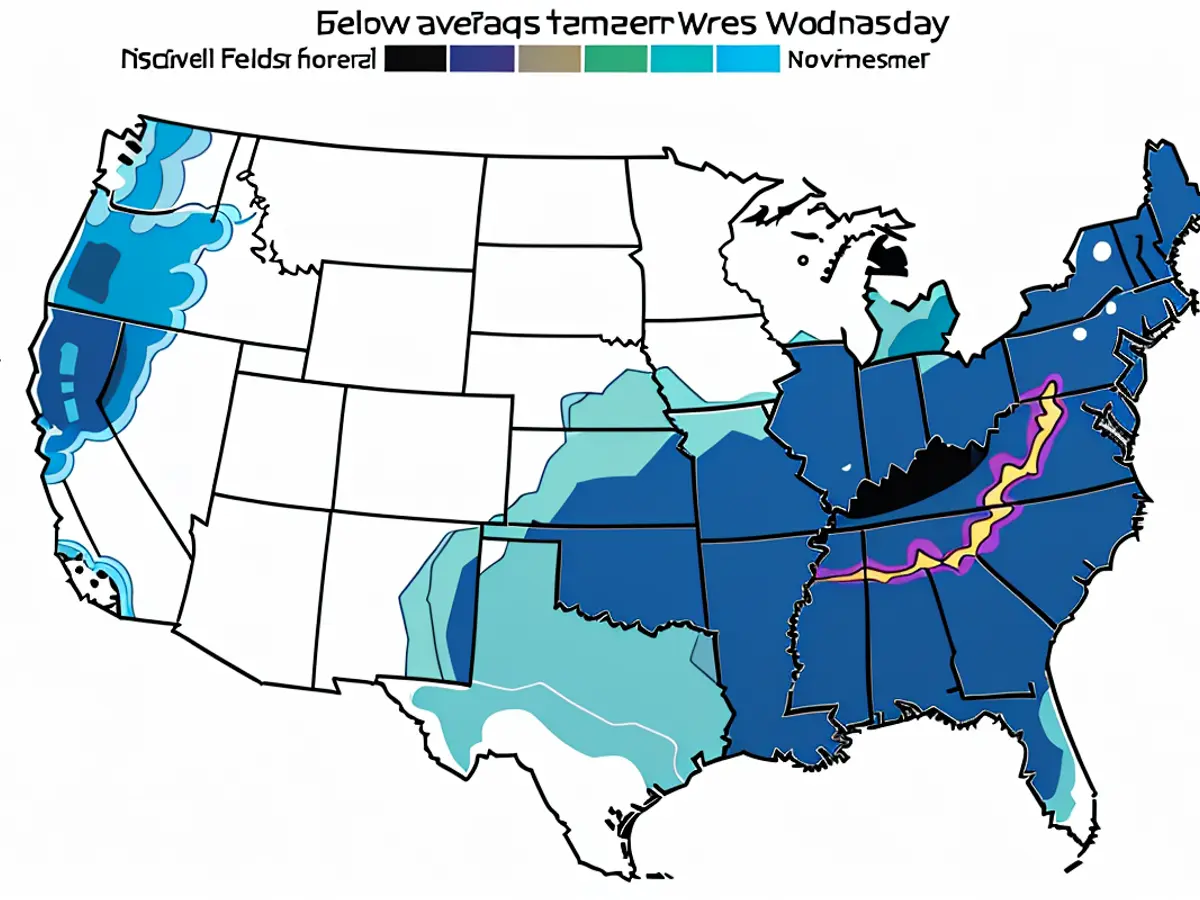Broken temperature records set - The German Weather Service declares 2024 as having the warmest spring on record.
In the spring of 2024, Germany broke records for the warmest season on record. According to the German Meteorological Service (DWD), the average temperature for spring hit an all-time high of 10.8°C, surpassing the internationally recognized reference period of 1961-1990 by 3.1°C. Comparing it to the current warmer reference period of 1991-2020, the difference was 1.9°C.
"Climate change can't be ignored," said DWD spokesperson Uwe Kirsche. "Following the warmest February and March we've ever had, we're now seeing unprecedented mean temperature levels in Germany for spring."
Scorching heat and icy cold in just one month
March 2024 brought a whopping 4°C more warmth than usual, almost resembling an average April. On April 6, Ohlsbach in Baden-Württemberg recorded a high of 30.1°C, marking a new record for the country. However, a cold snap soon followed, with Deutschneudorf-Bruderwiese in Saxony recording a low of -8.8°C on April 23.
The record temperatures were accompanied by regional extreme rainfall events, as the DWD mentioned further in its spring summary. May saw some particularly severe thunderstorms, causing heavy rainfall and dramatic flash flooding in the Saarland and Rhineland-Palatinate. On the flip side, parts of eastern Germany remained relatively dry.
A whopping 700 liters of rain per square meter
Over the course of spring 2024, some 235 liters of rain per square meter fell on average nationwide. In the reference period of 1961-1990, that figure was 186 liters per square meter, and in the period 1991-2020, it was 171 liters per square meter.
The southwest saw the highest rainfall, with parts of the Black Forest receiving more than 700 liters per square meter. In late May, heavy rainfall led to widespread flooding across Germany. On the other hand, eastern regions like Lusatia experienced relatively little rain.
Sunshine hours: Above average, but varying widely
In spring 2024, the country saw 485 hours of sunshine on average, slightly above the 467-hour average of the reference period 1961-1990. But there was a slight negative deviation compared to the 1991-2020 era, which had an average of 522 hours. The northeast enjoyed abundant sunshine, with some areas clocking in at over 600 hours, but the western uplands saw less than 400 hours of sunshine in certain areas.
Read also:
- The unusual weather patterns of spring 2024 were also observed in Offenbach, a city in Hesse, where the temperatures significantly surpassed the average for the time of year.
- The start of recording for the spring temperature measurements in Germany was marked by unusually high temperatures, setting the stage for breaking the climate change-influenced temperature records.
- In the analysis of the DWD data for the start of measurement, it was noticed that the climatic conditions in Germany during the spring of 2024 exhibited a notable warming trend when compared to both reference periods of 1961-1990 and 1991-2020.
- The warm spring in Germany, which marked the start of recording for climate change effects, led to an elevated temperature record in 2024, causing concerns about the future climate impact in Germany and across Europe.








